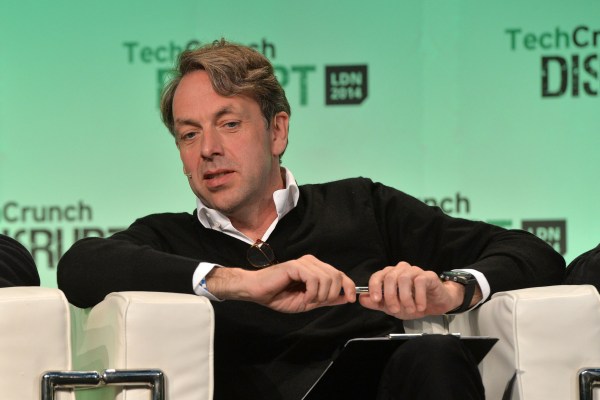As the European startup scene has matured over the last few years, so too has the VC scene. But a handicap has always been the issue of follow-on funding. Gradually, however, the most successful firms have managed to raise new funds based on past successes. One such has been Lakestar, the early investors in Spotify, Skype and Facebook. Today they announce Lakestar fund II, a new €350m ($385m) fund, which takes its place as one of the largest funds in Europe.
Lakestar II is the largest fund to be raised by the firm, after following on from the €135m ($150m) Lakestar I fund, which was launched in 2013. This new raise now sky-rockets it into a position close to Europe’s heavier VCs, such as Index Ventures, Accel Partners and Atomico. It means more options for European startups looking to scale in Europe, rather than having to move elsewhere. Lakestar II will be led by Lakestar’s shrewd Founder and Chairman Klaus Hommels.
The fund will focus on early stage investment (Seed and Series A), but now with much greater potential to make follow-on investments.
With offices in London, Berlin, Zürich and New York, the firm could be said to be in a position to bridge the continents for investors and startups alike. Just as the other, aforementioned VCs.
It helped that Lakestar I took positions in the successful Maker Studios, which was acquired by The Walt Disney Company in 2014; and Harry’s, the US-based subscription shaving service, which has since purchased the Feintechnik razor factory in Eisfeld, Germany.
It’s also invested in some of the hotter startups in the US and Europe, including Oscar (US), Algomi (UK), GoEuro (Germany) and Teralytics (Switzerland). Hommels has previously invested in Airbnb, Facebook, King.com, Xing and Spotify.
He said: “The European technology market is continuing to boom. We’re seeing high-quality investment opportunities in tech, in a venture capital ecosystem that has materially improved and is increasingly producing billion-dollar companies.
“We’re also seeing a shift in the way the most promising companies access funding – rather than going public, major players are seeking private funding later in their development, providing opportunities for follow-on investments in strong performers. Companies like Airbnb, Uber and Dropbox are raising on eleven-figure valuations.”
He added that Lakestar had received “huge interest” in the new fund, and “could have raised more than €600m, but this is the right size to give our portfolio companies the right level of personal attention and support to help them grow.”
In an interview he told me there were three reasons Lakestar had managed to raise the new fund to this level. Firstly their previous track record. Secondly that the attitude of US investors in European companies had become much more positive. And thirdly that “We could demonstrate that we had enough companies that were successful enough to require follow-on funding.”
He had also been surprised by the interest: “I never thought I would have to call investors and cut them down by 20% so that we could cap the fund. That’s unprecedented.”
“If you look at the 2000s, our European ecosystem really only started in 2004. And then it took some time to produce the startup heroes and educate people. The second wave for 2007-8 was Rocket Internet. It created more of an ecosystem. Now if you look, the entrepreneurs are more daring. Everyone has better worldwide contacts. And now LPs have seen returns. Sequoia, and Google Ventures, for example, have come to Europe. And some big brand names have come out of Europe, so that has changed the perception of investors.”
To put all this in context, in 2013, Atomico, the VC fund founded by Niklas Zennstrom of Skype, had raised $476m and moved towards later stage investments. Accel had announced its $475m new fund for Europe and Israel. Earlybird had announced a new European fund and a new $130m fund targeting Turkey and Eastern Europe.
Then in April 2014 Balderton (formerly Benchmark Europe) announced $305m for its fifth European fund and moved from the slightly old-fashioned Mayfair to be closer to the startup cluster in London’s East.
In June 2014 Index (going since 1996) announced a new $550m early stage fund. That July, Google Ventures came to Europe with a $130 million ever-green, annual fund and recruited a who’s who team, including former TechCrunch writer, MG Siegler. Assuming it runs on a five year cycle, that would make it a $500m fund dedicated to Europe, or thereabouts.
In September 2014 Mosaic Ventures launched a new $140M fund aimed at the Series A opportunity in Europe. In the same month DN Capital, the early backer of Shazam, raised its third fund for $200M, three times the size of its previous funds. In December 2014 Nordic fund Northzone, an early Spotify backer, announced a $325m fund, its seventh and largest so far.
This year alone, Passion Capital, a US-style “micro-VC” announced its second fund of $69m after investing in over 40 companies in the last 4 years.
Others have started spinning out new funds.
Last June, Harry Briggs of Balderton, Rory Stirling of MMC and Simon Calver, former CEO of Lovefilm, announced a £200m fund targeting the UK. Also in June, Frederic Court, formerly at Advent, unveiled Felix a new $120M fund focused on digital lifestyle and brands. And Point Nine Capital out of Berlin, announced their third fund (a second institutional fund) of $60m to continue to back enterprise startups.
And that’s not to mention the various new funds being raised right now by other “spun off” VC partners and former entrepreneurs.
Clearly Lakestar is not just riding the new European wave, it’s also a big part of it.
